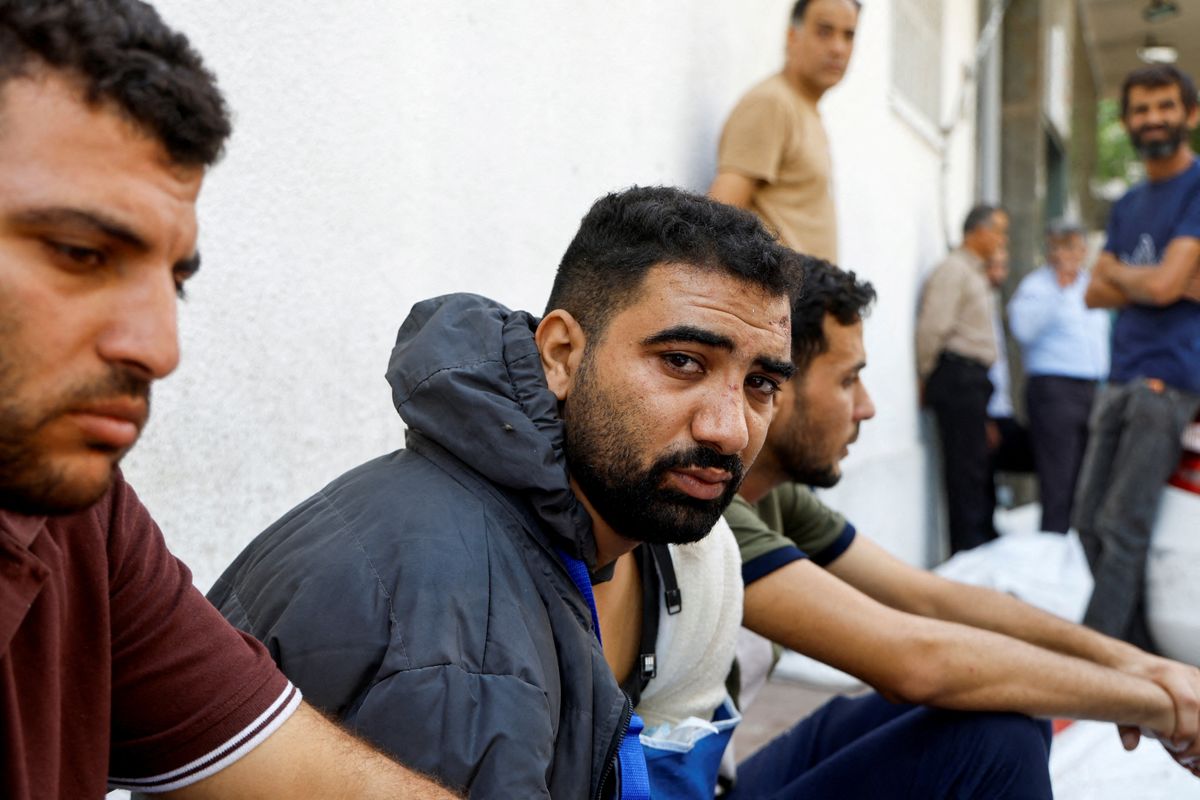Palestinians are trying to flee a sealed-off Gaza Strip
The UN said that over 200,000 Gazans have fled their homes since Saturday, with most of them sheltering in schools run by a UN agency.

A few minutes every morning is all you need.
Stay up to date on the world's Headlines and Human Stories. It's fun, it's factual, it's fluff-free.
The backstory: The 40-kilometer-long (25 miles) Gaza Strip has a long history. It’s historically considered Palestine, but it’s traded hands many times over the years. During what’s known as the Nakba in 1948, hundreds of thousands of Palestinians re-settled in Egypt-held Gaza. When Gaza was captured by Israel, troops stuck around to oversee the construction of settlements. Twenty years later, Palestinians launched a major uprising, leading to the creation of the militant group Hamas.
Hamas is a designated terrorist organization in many parts of the world, like the US and Israel, while it’s viewed as a resistance group in regions like the Arab World and China. In the 90s, Palestinians in Gaza achieved semi-autonomy with the Oslo Accords, but that whole idea ended up failing after a few years. Hamas and other groups staged violent attacks to end the peace process, and another major uprising took place in 2000. In 2005, Israel officially evacuated its settlements in Gaza. And then, in 2007, Hamas took over the Gaza Strip.
More recently: To limit threats from Hamas, Israel constructed a high-tech security blockade along its border with Gaza. By 2008, the Gaza Strip was completely sealed off. Israel also controls Gaza’s airspace and sea, plus imports and exports from the area. No one can come or go without permission from both Israel and Egypt, which controls a blockade on its own small, shared Gaza border.
Over the past 16 years, living in Gaza has gotten more and more difficult. Earlier this week, we reported that it’s widely referred to as "the world's largest open-air prison." The UN Relief and Works Agency for Palestine Refugees in the Near East (UNRWA) says clean water is unavailable for 95% of the population. The UN reports that 80% of Gazans have been living in poverty, with electricity access at crisis levels. Gaza gets most of its electricity from Israeli power lines, and produces some of its own at a power plant in Gaza with fuel from Israel.
These days, it’s densely populated, with over 2.3 million people living there, with 1.7 million who are Palestinian refugees. After Hamas launched surprise attacks from Gaza on Israel and its civilians on Saturday, Israel began striking Gaza. Israeli Prime Minister Benjamin Netanyahu addressed the people of Gaza, telling them: “Get out now. Because we will operate everywhere.”
The development: On Monday, Israeli Defense Minister Yoav Gallant announced that the people of Gaza would receive “no electricity, no food, no water, no fuel.” Israeli strikes have already flattened entire Gazan neighborhoods, with forces warning civilians to evacuate before striking. All borders and checkpoints between Gaza and Israel are closed, which the World Food Program said restricts aid from entering. It’s requesting that Israel open up “humanitarian corridors” for organizations to get supplies into the territory.
Gaza’s power plant ran out of fuel on Wednesday, and now the entire territory is basically in a blackout. An Israeli attack cut off people crossing at the blockade exit point between Egypt and Gaza. Egypt wants to set up safe passage for aid to get into Gaza, but it's reportedly not as keen on opening safe corridors for civilians to flee into Egypt. They obviously can’t flee into Israel. The UN said that over 200,000 Gazans have fled their homes since Saturday, with most of them sheltering in schools run by a UN agency.
Key comments:
“Any restrictions on the movement of people and goods to implement a siege must be justified by military necessity or may otherwise amount to collective punishment,” said Volker Türk, the UN high commissioner for human rights.
“We will not allow a reality in which Israeli children are murdered,” Israeli Defense Minister Yoav Gallant said in a meeting on Tuesday. “I have removed every restriction – we will eliminate anyone who fights us, and use every measure at our disposal.”
“Overwhelmed hospitals treating thousands of wounded will now have to do so without reliable access to electricity,” Mahmoud Shalabi, a senior program manager for Medical Aid for Palestinians, a charity based in the UK, said in an email.




Comments ()